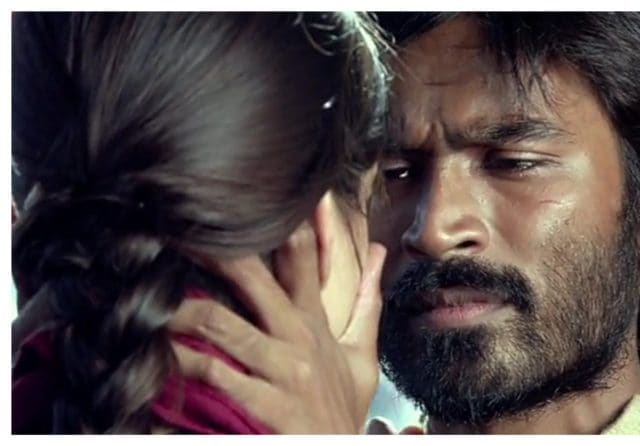Click here to follow Screen Digital on YouTube and stay updated with the latest from the world of cinema.
Eros denies Aanand L Rai’s stand on re-release of Raanjhanaa, says using AI to present ‘a respectful creative reinterpretation’ of original
Raanjhanaa, starring Dhanush and Sonam Kapoor, released in 2013. The film is set to re-release with some of its parts being altered by AI. While the studio says the re-release is 'clearly labelled and separate from the original version', Rai says past work should not be 'distorted'.
 Movies hold the choices, mistakes, and passions of the people who made them. When you rewrite the story, you are erasing the very thing you are claiming to celebrate.
Movies hold the choices, mistakes, and passions of the people who made them. When you rewrite the story, you are erasing the very thing you are claiming to celebrate.
Aanand L Rai’s 2013 romantic drama Raanjhanaa has a loyal fan base, despite its polarizing ending. At the end of the film, Dhanush’s character Kundan dies after getting shot at a public rally orchestrated by the establishment. Sonam Kapoor, who plays his love interest Zoya, is aware of the conspiracy. So does Kundan, but he obliges out of love for Zoya.
Now, 12 years later, Raanjhanaa is re-releasing in cinemas on August 1 with certain parts of it being “powered by Artificial Intelligence”. While Aanand L Rai, who directed and co-produced the film under his banner Color Yellow Productions, claims he wasn’t consulted by the studio Eros International for this decision, the studio has said that they are the ‘sole and exclusive copyright holders of the film’ and the re-release is ‘offered as an addition to, not a replacement of, the original’.
“I got to know about it through a social media announcement a couple of days ago. People have already been messaging me asking me why that ending is being changed. I just can’t wrap my head around this,” Rai tells SCREEN. He alleges he reached out to Eros International and expressed his objection, but when they didn’t agree with him, he now plans to write to them, asking them to disassociate his name from the re-release. “I don’t get it, how can they do this? It’s an ending people have loved! If not the filmmaker, at least listen to the audience,” says Rai.
Eros Media World’s group CEO Pradeep Dwivedi said in a statement to SCREEN, “We are the sole and exclusive copyright holder and producer of Raanjhanaa, and are fully entitled, both legally and ethically, to adapt and re-release the film. This includes re-imagining certain elements using advanced tools such as generative AI to reach new audiences while preserving the original’s artistic soul. Contrary to the claims of ‘artistic vandalism’, our re-release is a respectful creative reinterpretation—clearly labelled and separate from the original version—offered as an addition to, not a replacement of, the original. Such practices are common in global cinema, and reflect our long-standing commitment to innovation, audience engagement, and cultural preservation.”
Also Read — Aanand L Rai on Dhanush-starrer Tere Ishq Mein: ‘It is from the world of Raanjhanaa, but…’
Rai says this move sets a dangerous precedent for filmmakers. “The only good thing that’s come out of this is I’ve learnt my lesson. I’ve to be very careful while signing the dotted line. I’m dealing with this, but other filmmakers should learn from this. A studio doesn’t care about the story. Just to earn a few crores, they’re tampering with a writer, director, and actor’s creation,” says Rai. “They’ll realize it soon, when the actors and the audience will get back to them. No actors would want to work with them now. Maybe they don’t want to work with actors anymore. They plan to make films with AI only. They say, AI is the future. Everybody knows that. But then use it for the future or for the present. Don’t use it to distort the past!”
Eros, however, dismisses his stand, underlying the studio’s commitment towards cinema and technology. “We remain committed to celebrating Indian cinema, nurturing talent, and embracing technology responsibly. With over 4,000 films produced and distributed globally, we have always supported artistic voices and technological innovation alike—while ensuring the highest levels of respect, integrity, and legal compliance. We urge the media and our audiences to see this situation in the light of facts, law, and the spirit of creative evolution,” Dwivedi said.
- 01
- 02
- 03
- 04
- 05

































